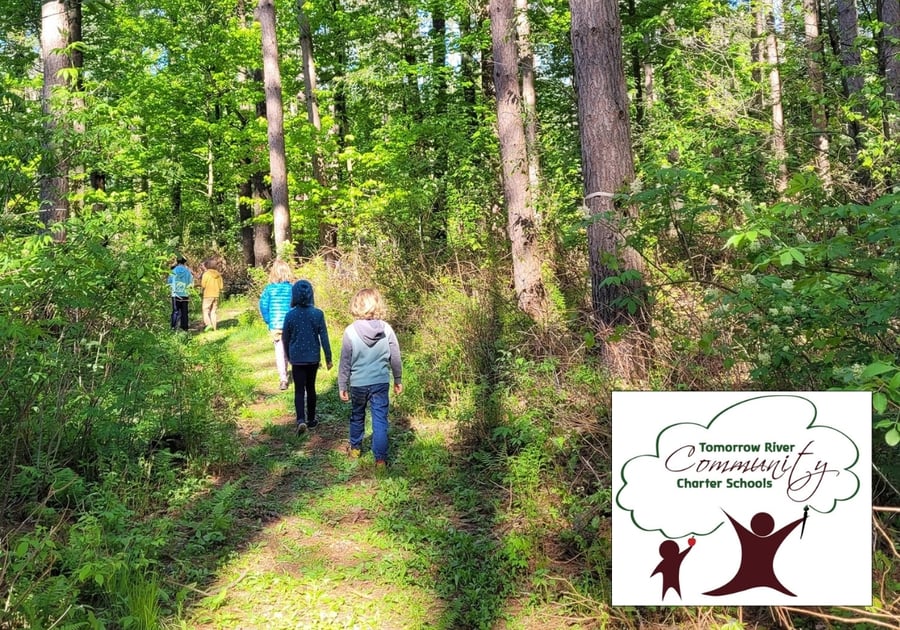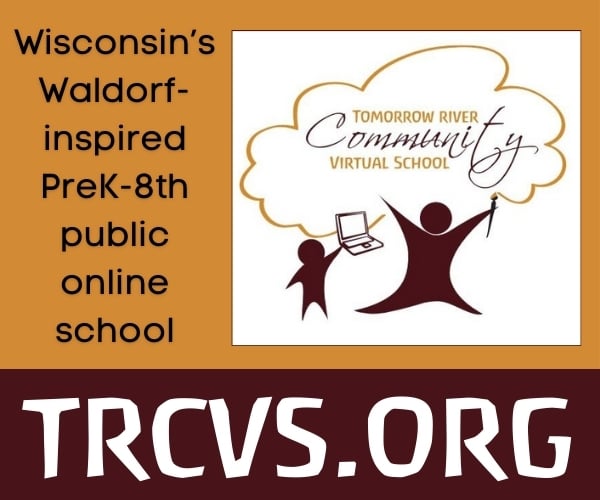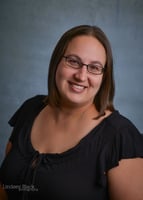Are you seeking a developmentally appropriate educational experience for your child? One that immerses students in the arts and the outdoors? How about a nurturing, low-tech learning environment for your child that fosters a life-long love of learning while teaching practical life skills and immersing students in the arts and nature?
Tomorrow River Community Charter Schools meet all of the same state standards of a traditional school, but through a non-competitive, nurturing environment that delivers instruction not only through standard lecturing (head), but also through non-traditional methods like storytelling (heart), and through experimentation (hands). This multi-faceted approach to learning deepens retention of subject matter for various types of learners.
This article is sponsored by Tomorrow River Community Charter Schools.
Want to know more? Here are five reasons to consider Tomorrow River Community Charter Schools (TRCCS), a tuition-free charter school guided by the Core Principles of Public Waldorf Education, for your PreK-8th grade students.
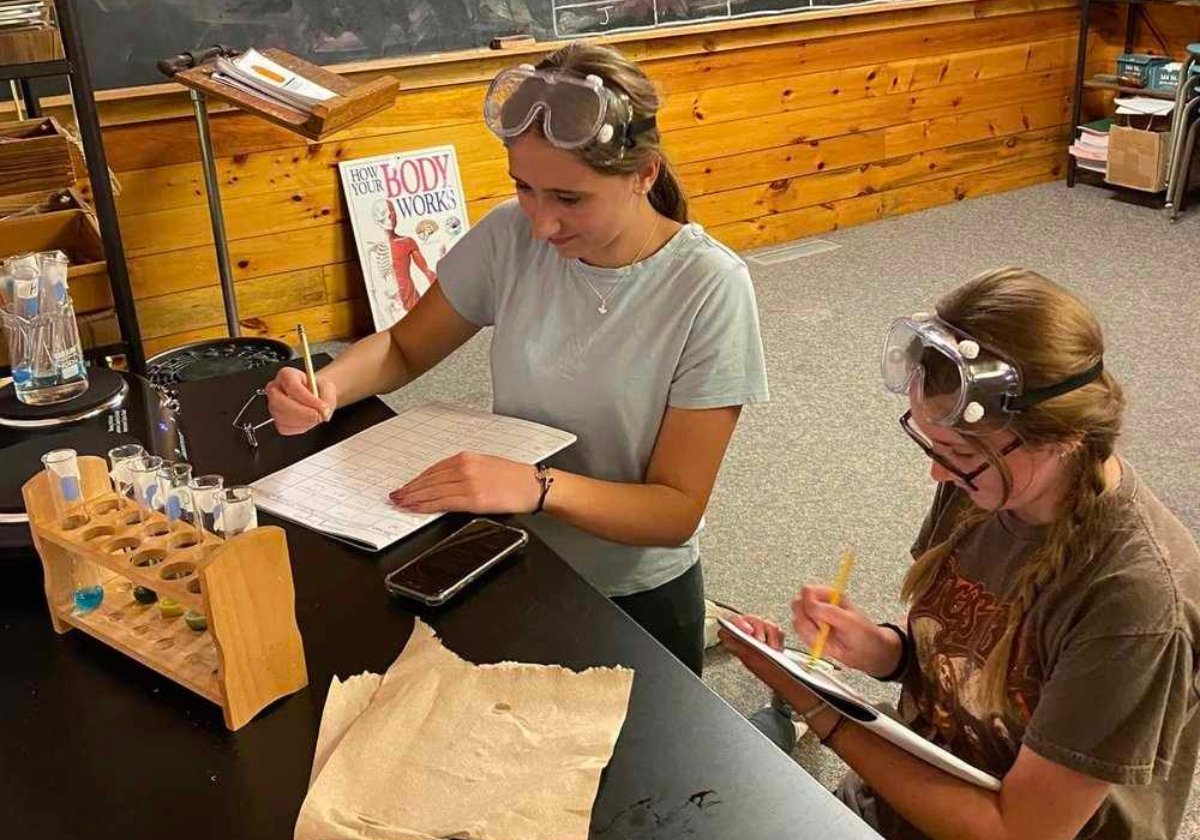 Eighth grade science class. Eighth grade science class. |
1. Waldorf Works!
Now in our 11th year, TRCCS can proudly share that our public Waldorf methodology is effectively preparing students for secondary education. We are graduating confident, conscientious, and compassionate students by fostering creativity, developing a thirst for knowledge, and delaying competition and technology until our upper grades.
With two 8th grade classes graduating on to area traditional high schools and Central Sands Community High School, we are proud to say that over half of those students are on the honor roll, and are excelling in the arts, sports, and community service. In addition, our early graduates of TRCCS have gone on to UW-Madison, AmeriCorps, and other achievements.
Waldorf education, established in 1919, is one of the fastest growing educational philosophies in the world today. The whole-child approach meets the children’s needs as they grow and develop. Technology is de-emphasized until fifth grade in order to preserve students’ imagination, and build a foundation of learning connected to their natural attraction to the wonders of nature.
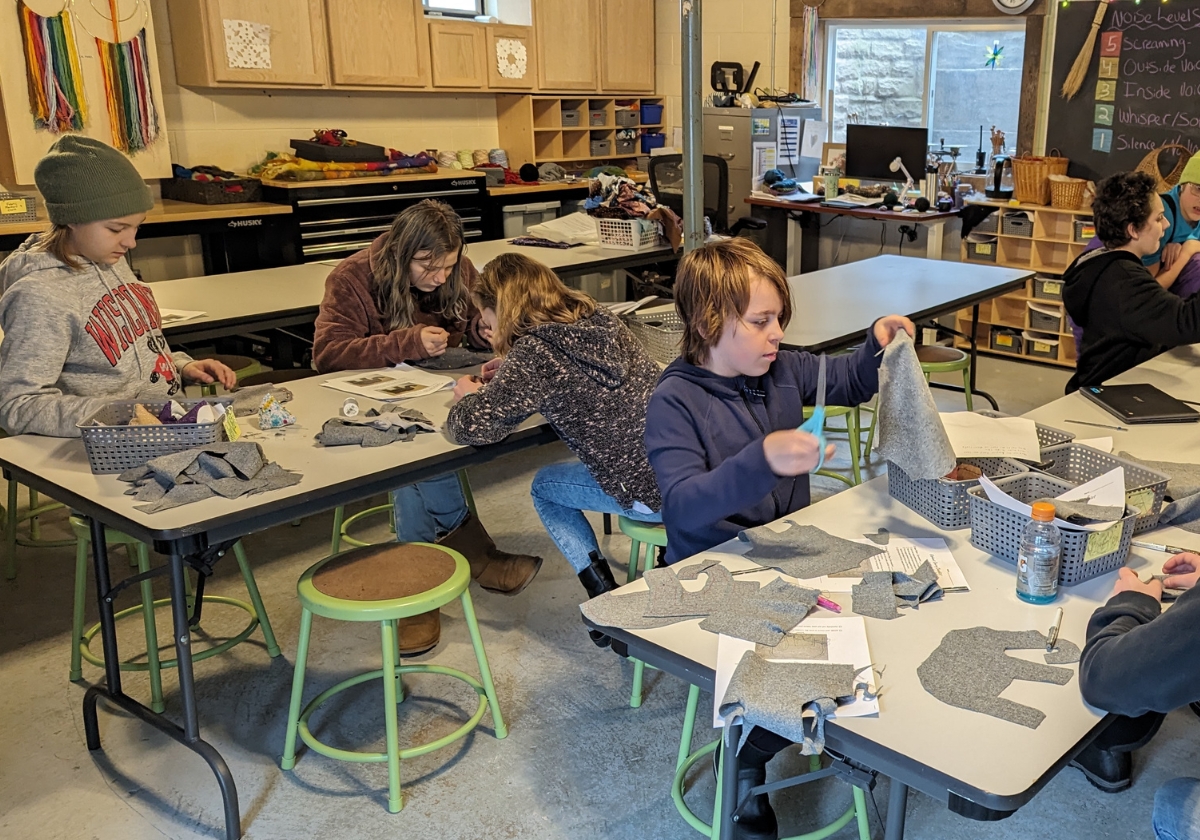 Sixth grade students learning 3D hand sewing with a stuffed elephant project. |
2. The Arts
Music, art, and movement are embedded in the learning process.
- Art: Watercolor (which has an emphasis on working with color rather than creating formed pictures), beeswax modeling, crayon illustrations, drawing, and illustrating lessons.
- Handwork: Knitting, crochet, hand sewing (all which promote hand-eye coordination, fine motor skills, arithmetic skills, sequencing, patience, perseverance and self-esteem), felting, seasonal crafts, and more.
- Performing Arts and Music: Singing songs, poetry, in-class drama, and annual performances. Instruments may include recorder, violin, ukulele, and guitar.
 | 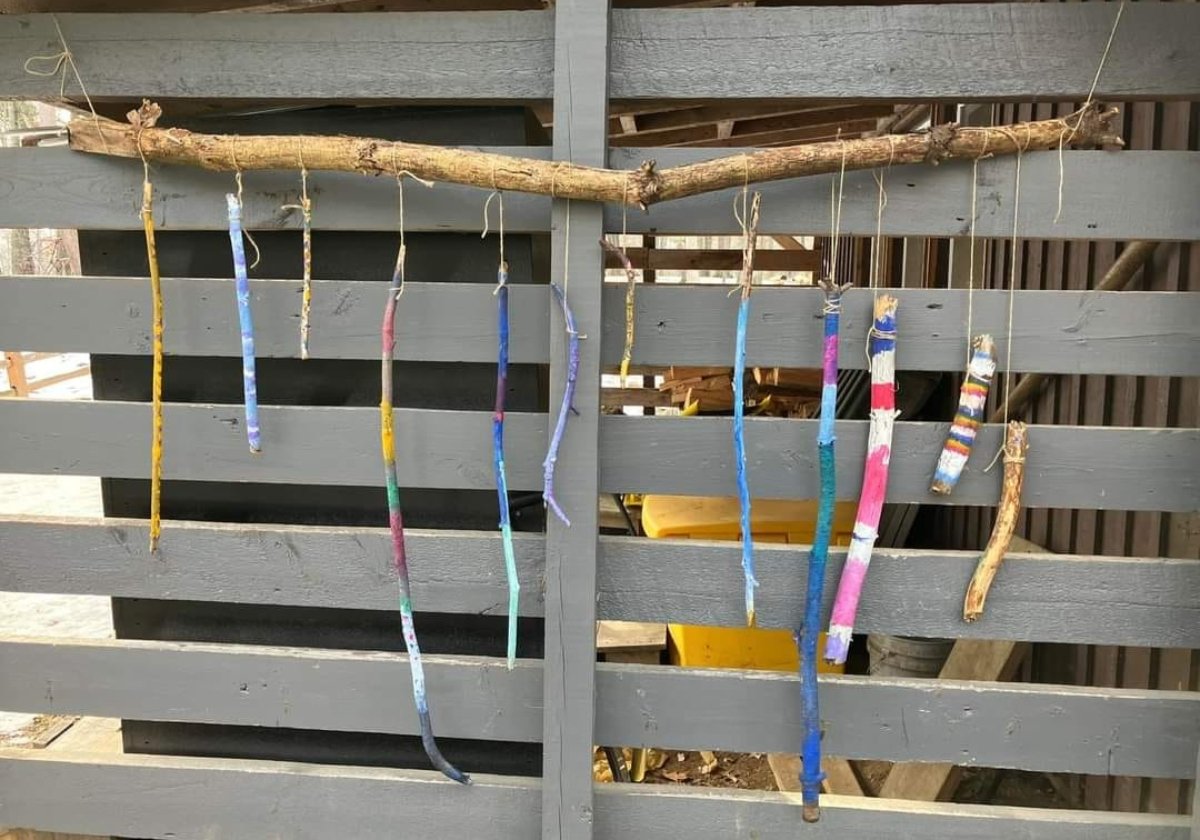 |
Out first graders made paint brushes from foraged materials found in nature. They used them to make this beautiful wind chime art piece during Environmental Education!
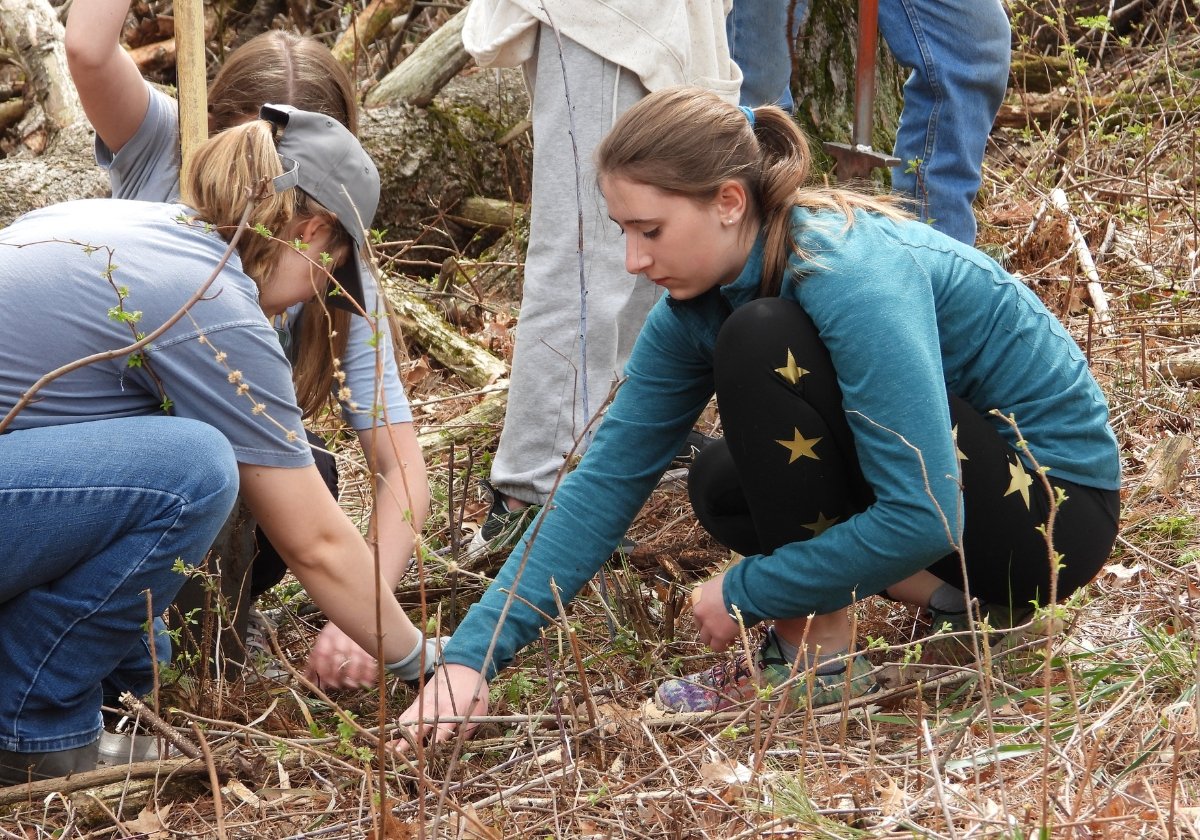 Seventh grade students working with UWSP Forest Restoration and Management students to improve the forest around Minister Lake. |
3. Environmental Education
Our campus is located at the Central Wisconsin Environmental Station, a 200-acre teaching and learning center located 17 miles east of Stevens Point on glacial Sunset Lake.
Students form a relationship with the environment as they learn to care for the earth’s plants and animals. Academic standards are infused into real-life hands-on projects like growing organic food in the school garden, as well as field experiences and service projects related to the local environment and natural resources. Children spend much time outside exploring the world around them, gaining a deeper understanding of science and nature studies.
Nature stories, nature walks, observing the local environment, visits to local farms, and gardening in our indoor greenhouse are all key parts of our students' learning.
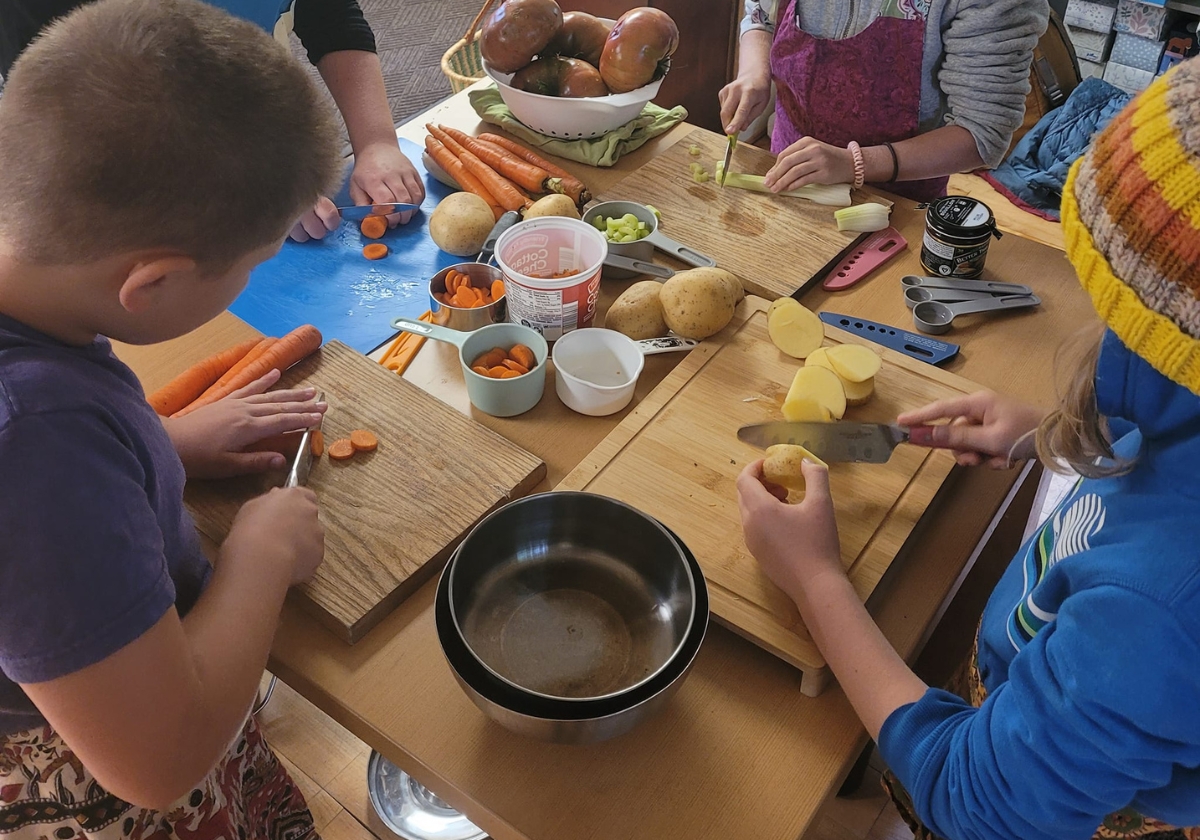 Third graders cooking lunch for their class. Third graders cooking lunch for their class. |
4. Practical Life Skills
Children are taught real-life tasks such as housekeeping, cooking, fiber arts, gardening, nature studies, conservation, botany, and more.
They also engage in meaningful service projects that introduce them to the people and needs of their local community, while developing a reverence for environmental stewardship.
What parents are saying:
The best place I could ever have envisioned for my children besides home with me. Thank you to all the hard working staff and parents who have made this place possible. Keep up the good work. Great teachers make all the difference. — Brigid Ferkett
5. Developmentally Appropriate Education
The TRCCS curriculum is education to the hands, heart, and head.
Pre-K and Kindergarten focuses on social/emotional intelligence and learning practical life skills like cooking and cleaning. Abstract concepts, like reading, are introduced gently in the early elementary grades. As the brain develops and is more receptive to complex subjects, the content becomes progressively more difficult, readying the graduating 8th grade students for their high school years beyond TRCCS.
Wisconsin's open enrollment period for the 2024/25 school year runs now through April 30. If you reside outside of the Tomorrow River School District, you must apply for open enrollment, as well as apply to TRCCS. For more information on our virtual school, which is free for ALL Wisconsin students, visit trcvs.org.
And it's not too late to join us for the 2023/24 school year! Not all of our classes have waiting lists! Call our office to learn more about availability: 715-319-3008 or visit www.trccs.org/admissions.

